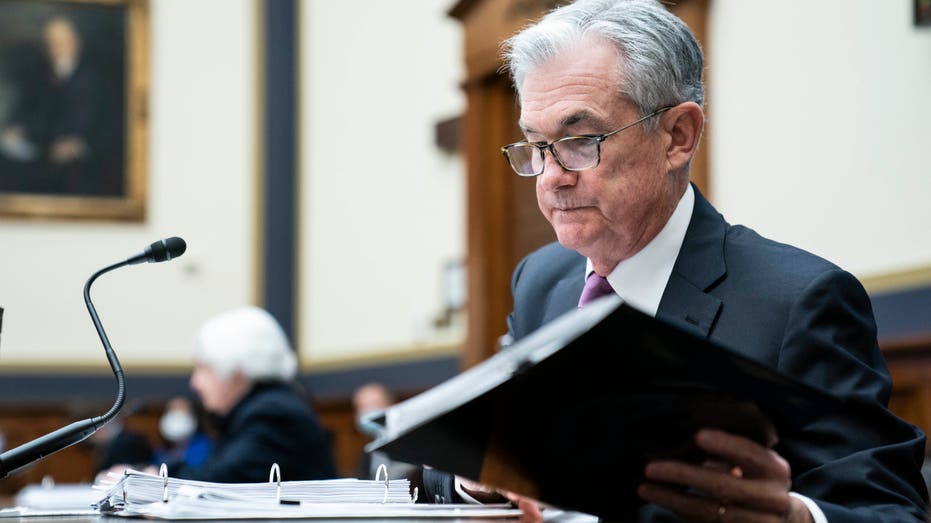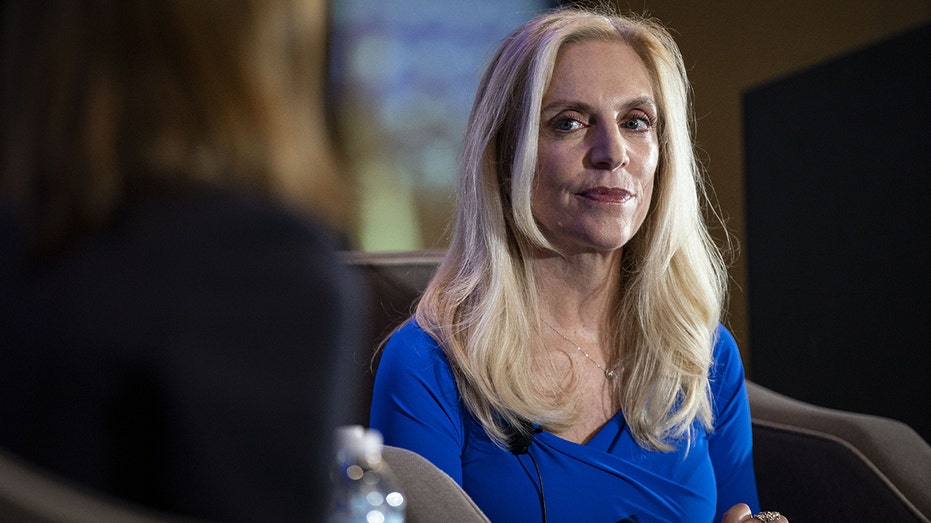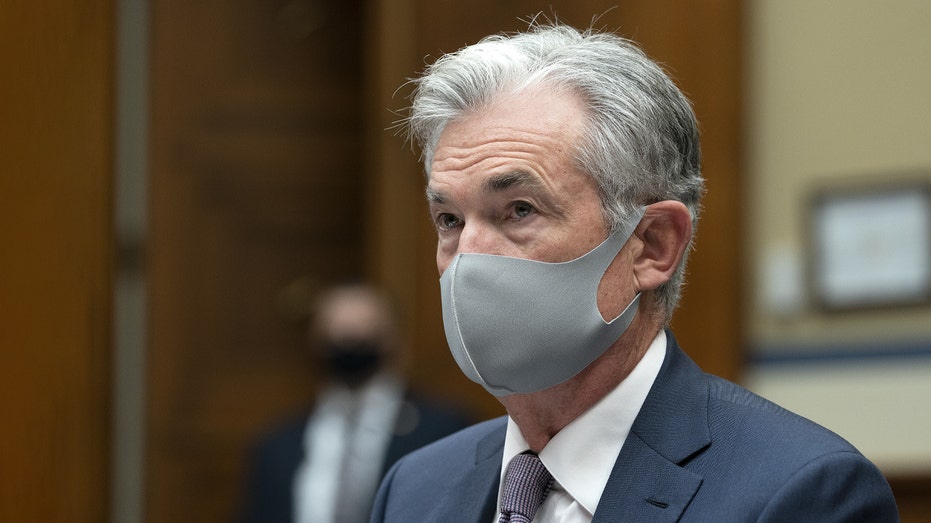White House decisions on Fed leadership complicated by trading furor
Powell is forerunner to keep job as Fed chairman when his term expires
Federal Reserve Chairman Jerome Powell’s chances for a second term leading the central bank so far have been dented but not derailed by a reputational crisis over stock-trading disclosures by senior officials.
Mr. Powell, a Republican, has been the front-runner to keep the job when his term expires early next year. But questionable trading activities by two Fed bank presidents, first reported last month by The Wall Street Journal, cast a cloud over his prospects by giving a vocal minority of Democrats who already opposed his nomination new grounds to call for his replacement.
President Biden’s decision on who should lead the Fed when Mr. Powell’s term ends in February comes as economic data shows signs of broadening inflation pressures, which threaten to complicate coming decisions over unwinding monetary stimulus put in place to support the economy when the Covid-19 pandemic hit last year.

Federal Reserve Chairman Jerome Powell arrives to testify at a House Financial Services Committee hearing in September. (Photo by Sarah Silbiger-Pool/Getty Images / Getty Images)
POWELL STILL FAVORITE FOR FED REINSTATEMENT ON INVESTORS EXAMINE ALTERNATIVES
"The trading scandal has thrown a wrench into the [White House personnel] machinery that was slow moving to begin with," said Tim Duy, chief U.S. economist at SGH Macro Advisors, in a note to clients. "Progressive groups have been looking for the crack in Powell’s defenses and think they have found it."
For now, no Senate Democrats have publicly joined Sen. Elizabeth Warren (D., Mass.) after she ratcheted up her criticism of Mr. Powell’s leadership last week. People familiar with the administration’s deliberations said Ms. Warren’s attacks haven’t landed and that the trading imbroglio is viewed as unfortunate but not scandalous. That is at least in part because Mr. Powell has taken initial steps to quell the controversy.
Some analysts said the issue could also be a headache for the White House if they choose not to reappoint Mr. Powell because governor Lael Brainard, a Democratic economist seen as the most viable candidate to succeed him, has been responsible for oversight of the system’s 12 reserve banks for the past several years.
Mr. Duy said that a "scorched earth effort" to stop Mr. Powell could have unintended collateral damage by raising questions over why others at the Fed, including Ms. Brainard, weren’t aware of the trading disclosures.
While neither leader is necessarily to blame for the trading decisions of other officials, "at the very least, if this implicates Powell, it also implicates Brainard, too," said Roberto Perli, a former Fed economist who is now an analyst at research firm Cornerstone Macro.
A Senate Republican staffer said that to the extent Mr. Powell faces questions in a prospective confirmation hearing over the investment inquiries, so too would Ms. Brainard, given her role overseeing the reserve banks.
‘WOKE’ FED RISKS LOSING CONTROL OF INFLATION, SAYS FORMER TREASURY SECRETARY LARRY SUMMERS
Those responsibilities include annual reviews of each reserve bank, including budgets and general operations. Dallas Fed President Robert Kaplan ‘s trading activities have been reported annually since he joined the bank in 2015, and his investment patterns in 2020 were similar in the preceding years. In January, the Fed formally reappointed the reserve bank presidents to new five-year terms following what Ms. Brainard called a "rigorous process" in a press release.
The crisis is serious because the Fed’s imprint over the economy is as large as it has ever been, and questions over whether the institution is acting in the public’s best interest tarnish its credibility.
Mr. Kaplan resigned his position last week after his financial disclosures showed he last year bought and sold at least $1 million in stock of companies including Chevron Corp. , Delta Air Lines Inc., Marathon Petroleum Corp. , and Johnson & Johnson.
Separate disclosures by Boston Fed President Eric Rosengren, who cited health reasons in retiring last month, showed he had made more than three dozen trades, albeit in much smaller sums than Mr. Kaplan, in stocks of four real-estate investment trusts that buy mortgage-backed securities.
Both banks have said the trades followed the Fed system’s code of conduct, but ethics experts said they showed poor judgment; in the latter case, for example, the Fed last year was buying large quantities of mortgage bonds to stabilize dysfunctional markets. Some critics have raised questions over whether the transactions flouted broader guidance to senior Fed officials that instructs them to "avoid engaging in any financial transaction, the timing of which could create the appearance of acting on inside information."
Ms. Warren called last week for the Securities and Exchange Commission to review the investment activities, including disclosures from May that Vice Chairman Richard Clarida had moved money between mutual funds as the coronavirus pandemic began buffeting markets. She had earlier declared her opposition to Mr. Powell’s potential nomination on the basis of his record easing bank regulations.
CLICK HERE TO READ MORE ON FOX BUSINESS
Mr. Clarida, who listed five transactions involving broad-based index funds last year occurring on two dates six months apart, has said those transactions were part of a preplanned rebalancing. "I’ve always acquitted myself honorably and with integrity with respect to the obligations of public service," he said during public remarks Tuesday.
In a Senate speech last week, Ms. Warren cited the transactions as evidence of a "culture of corruption" at the Fed and said Mr. Powell, who she had previously characterized as a "dangerous man," had "failed as a leader."
The Fed said last week it engaged its inspector general’s office to conduct an independent review of the trading. At congressional hearings last month, Mr. Powell promised to revamp policies covering how senior officials manage personal investments to minimize even the appearance of conflicts of interest. The rules that allowed the trading by Messrs. Kaplan and Rosengren to occur aren’t adequate to sustain the public’s confidence, he said.

Lael Brainard, governor of the U.S. Federal Reserve, during the National Association of Business Economics (NABE) annual meeting in Arlington, Virginia in September. (Al Drago/Bloomberg via Getty Images / Getty Images)
Mr. Powell was confirmed on a bipartisan basis in 2018, and his reappointment has been endorsed by lawmakers in both parties. Ms. Warren was the only senator on the 23-member Senate Banking Committee to oppose his confirmation in 2018.
Potential GOP opposition to Ms. Brainard, meanwhile, creates "at least an open question over whether she could get confirmed," said Sarah Binder, a political scientist at George Washington University, who co-wrote a history of the Fed.
Democrats control the Senate with Vice President Kamala Harris able to break a 50-50 tie. But securing a party-line confirmation on the Fed chair may "not be the message that the Biden White House wants to send to the world," said Ms. Binder.
INFLATION SOARS TO HIGHEST RATE IN 13 YEARS-HERE'S WHAT THAT MEANS FOR INTEREST RATES.
Even before the latest controversy, the Fed appointment decision had opened a divide among Democrats, with one group urging that Mr. Powell be replaced so the central bank would more explicitly pursue progressive priorities on bank regulation and climate change. Another group argued Mr. Powell’s bipartisan backing had insulated his objectives of promoting a stronger labor market recovery against more intense partisan attacks. Members of Mr. Biden’s economic team, including Treasury Secretary Janet Yellen, have supported reappointment.
The last three presidents selected their nominee for Fed chair by early November to allow enough time for Senate confirmation ahead of the new term, which starts in February. Mr. Biden already has one vacancy to fill on the Fed’s seven-member board. Mr. Clarida’s term as vice chair expires in January, giving Mr. Biden two slots to fill in addition to the decision on whether to retain Mr. Powell.
A potential leadership reshuffle kicked off this week when the four-year term of Randal Quarles as the vice chairman of bank supervision expired. Mr. Biden hasn’t nominated anyone for the job, and the Fed said it wouldn’t designate any of the existing governors to handle Mr. Quarles’s portfolio.
Mr. Biden is making his decision at a particularly consequential moment for his domestic-policy agenda. He is trying to secure Democratic agreement on a $3.5 trillion proposal to address healthcare, education, child-care and climate policies while advancing a separate bipartisan infrastructure spending bill. Congress also will need to raise the federal borrowing limit later this year.
Both the tax-and-spending debates and the personnel decisions at the Fed represent significant sources of policy uncertainty heading into the final months of 2021. The Fed could face tougher choices next year if a more persistent inflation forces the central bank to accelerate plans to raise rates next year.
A White House spokeswoman said Mr. Biden is engaged with his senior economic team on personnel decisions and will make them "in a thoughtful manner."
The trading debacle is a blow to an institution whose culture has prized impartial research and analysis, preferring to stay out of the rough-and-tumble partisan debates of Washington.

Jerome Powell, chairman of the U.S. Federal Reserve, wears a protective mask during a House Select Subcommittee on the Coronavirus Crisis hearing in Washington, D.C. in September. ( Stefani Reynolds/Bloomberg via Getty Images / Getty Images)
CLICK HERE TO GET FOX BUSINESS ON THE GO
"They are on a very high pedestal, and so it is unsettling," said Norman Eisen, who served as the chief ethics lawyer in the Obama White House, who also applauded Mr. Powell’s early response. "He has talked the talk. He has not been defensive, and the two regional presidents have left. If he walks the walk, the Fed can emerge from this stronger."
Mr. Powell met with at least four Democratic senators last week, including Sens. Chris Van Hollen (D., Md.) and Raphael Warnock (D., Ga.). In at least one of the meetings, Mr. Powell didn’t wait for the subject of the trading controversy to come up and instead explained what had happened and what the central bank was doing to address it, according to a person familiar with the meeting.




















